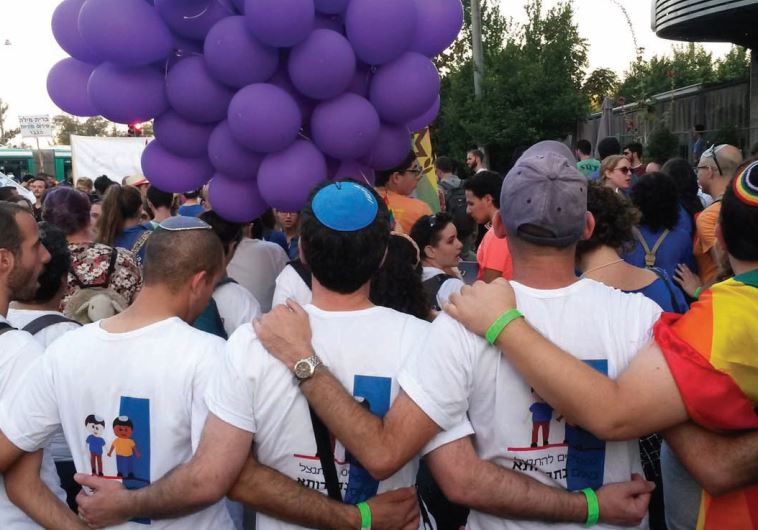Jerusalem rabbis speak out in support of the Pride Parade
Rabbi Donniel Hartman: everyone must fight for the place of LGBT community in society for Israel to be the homeland of the Jewish people.
 Havruta, an organization for religious gay men in Israel, marches in the 2015 Pride Parade(photo credit: ELAD LIFSHITZ)Updated:
Havruta, an organization for religious gay men in Israel, marches in the 2015 Pride Parade(photo credit: ELAD LIFSHITZ)Updated: